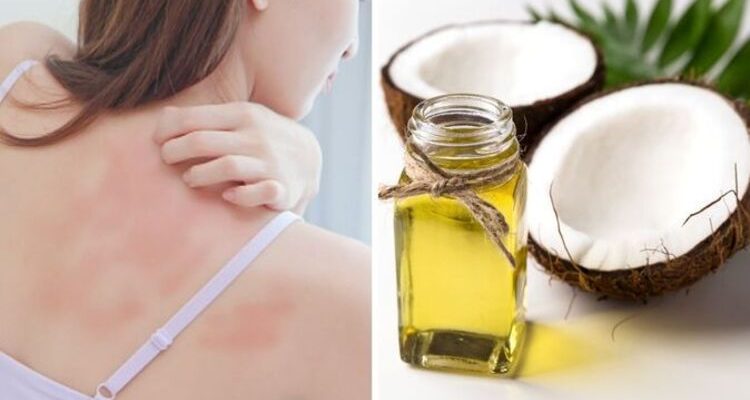Eczema natural treatments: The six alternative ways to manage eczema
Eczema: Dermatology Nurse explains how to use emollients
We use your sign-up to provide content in ways you’ve consented to and to improve our understanding of you. This may include adverts from us and 3rd parties based on our understanding. You can unsubscribe at any time. More info
Eczema is typically treated with atopic meditation, drugs prescribed by your GP, and powerful treatments offered by skin specialists and dermatologists, but natural treatments could help too. If you’re using natural therapies alongside what you’ve been prescribed, these are called ‘complementary’ methods. If you’re using natural therapies in place of conventional medicine, you’re using an ‘alternative’ method. Express.co.uk reveals the six best natural treatments for eczema, according to the National Eczema Association.
Coconut oil
Coconut oil is considered a safe and effective way to soothe the itching that comes with eczema.
Studies show that if you regularly apply coconut oil, it will reduce the number of staph bacteria on the skin and the chances of infection.
The National Eczema Association recommended applying coconut oil once or twice a day to damp skin.
Make sure you use virgin or cold-pressed coconut oil though as these types don’t use irritating chemicals.


Sunflower oil
Another oil that could help treat eczema is sunflower oil (unless you’re allergic to sunflower seeds).
Sunflower oil boosts the skin’s barrier function, which helps it to retain moisture and stops excessively dry skin.
Even better, sunflower oil has anti-inflammatory properties and could be really useful when it comes to treating eczema.
To make a difference, you’ll need to apply sunflower oil to adult skin twice a day.
The National Eczema Association recommended doing this when your skin is wet one of these times.

Supplements
A balanced diet is key no matter what condition you have or how healthy you are, but supplements can help you if you haven’t got a perfect diet.
The association recommended the following vitamins and minerals to combat eczema:
- Vitamin D
- Fish Oil
- Zinc
- Selenium
- Prebiotics and Probiotics
- Melatonin
- Turmeric
- Primrose oil
- CBD

Yoga, Qigong and Tai Chi
Yoga, Qigong, and Tai Chi aren’t just great for your physical fitness; these ancient mind-body practices have been proven as a beneficial treatment for eczema.
The National Eczema Association said: “All examples of ancient mind-body practices that combine breathing with body movement and meditation to attain focus, clarity, and relaxation.
“Some individuals with eczema believe these gentle exercises have helped them reduce stress, lower inflammation, and distract from the itch.
“Tai Chi and Qigong are martial art forms that combine graceful movements with diaphragmatic breathing to help circulate vital energy called Qi in order to achieve a balance between the body and mind.
“Yoga is rooted in Ayurveda and based on a Hindu philosophy that combines deep, slow breathing (pranayama) with a series of poses (asanas) to help achieve balance, focus, and inner peace.”

Acupressure and massage
Acupressure on a certain spot of your body has been shown to ease eczema all over the body.
The site explained: “Acupressure is similar to acupuncture but with physical pressure applied to certain points on the body, rather than needles, to unblock ‘life energy’.
“Limited studies show that acupressure can help relieve the symptoms of itch and lichenification, which is thick, leathery skin.
“It is well known that massage helps relieve stress, which may then help reduce eczema flares.
“It’s important to go to a massage therapist who is accredited and experienced with working with people with non-contagious skin conditions.
“Prior to your appointment, check with your massage therapist to be sure the oils and lotions used will not trigger your eczema or make it worse. Bring your own if you are unsure.”
Source: Read Full Article
